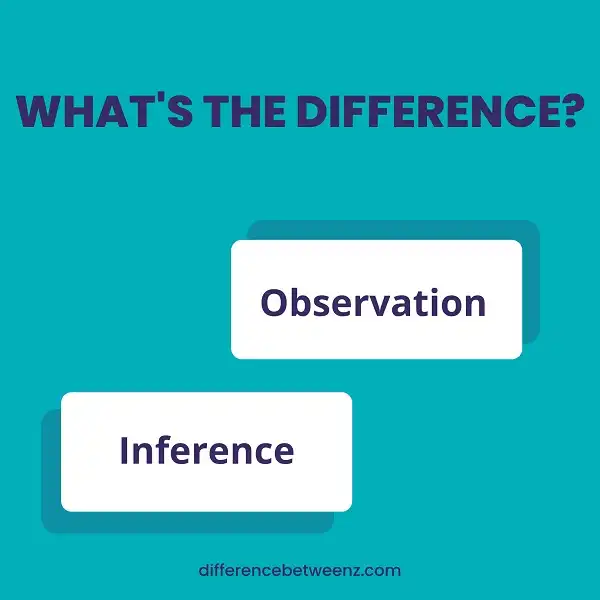There is a big difference between observation and inference. Observation is simply what we see, while inference is our attempt to figure out the hidden meaning or intention behind what we see. When we make an inference, we are using our own reasoning and interpretation to come up with a conclusion. This process can be tricky, as it’s easy to jump to conclusions without enough evidence. It’s important to always be aware of the difference between observation and inference in order to avoid making inaccurate assumptions about others’ intentions or motivations.
What is Observation?
Observation is the act of paying attention to something or someone. It is often used in research, particularly in psychology and scientific studies. Observation can be conducted passively, simply by observing what is happening around you, or actively, by asking questions and taking notes. When conducting observing research, it is important to be as objective as possible, recording what is happening without allowing personal biases to influence your findings. Observation is a powerful tool that can be used to gain insights into behavior, trends, and patterns. When used correctly, it can provide invaluable information that can be used to improve our understanding of the world around us.
What is Inference?
The inference is the process of drawing conclusions based on evidence and reasoning. In other words, it is the act of making assumptions based on what is known. In many cases, inferring can be a helpful way to fill in gaps in information. For example, if you know that a friend is good at keeping secrets, you may infer that they would be a good candidate for a confidant. Inferring can also be dangerous, however, as it can lead to erroneous conclusions. This is why it is important to use evidence and logic when making inferences, rather than relying solely on intuition. With practice, anyone can learn to make sound inferences and avoid basing their opinions on misinformation.
Difference between Observation and Inference
Observation is the process of taking in information through our senses. In contrast, the inference is the process of drawing conclusions based on our observations. Observation is a passive process; we simply take in information without necessarily interpreting it. Inference, on the other hand, is an active process; we use our observations to come to conclusions about the world around us. Observation is rooted in the present; we can only observe what is happening in the here and now. Inference, on the other hand, often relies on past experience; we use our knowledge of the world to interpret what we observe. Observation is objective; we simply record what we see, hear, smell, etc. The inference is subjective; we filter our observations through our own biases and worldview. Finally, observation is factual; we cannot change what we observe. The inference is interpretive; we can choose to draw different conclusions from the same set of observations. Observation and inference are two important processes that help us to understand the world around us. They are both essential for scientific discovery and for everyday life.
Conclusion
The difference between observation and inference is an important one to understand. Observation is when you see something with your own eyes, while inference occurs when you make a logical deduction from what you have observed. In business, it’s important to be able to tell the difference between the two because making incorrect inferences can lead to faulty decisions. The next time you’re in a meeting or working on a project, take care to ensure that all of your observations are backed up by evidence and that your inferences are soundly based on that evidence. Doing so will help you make better decisions for your business and avoid costly mistakes.


